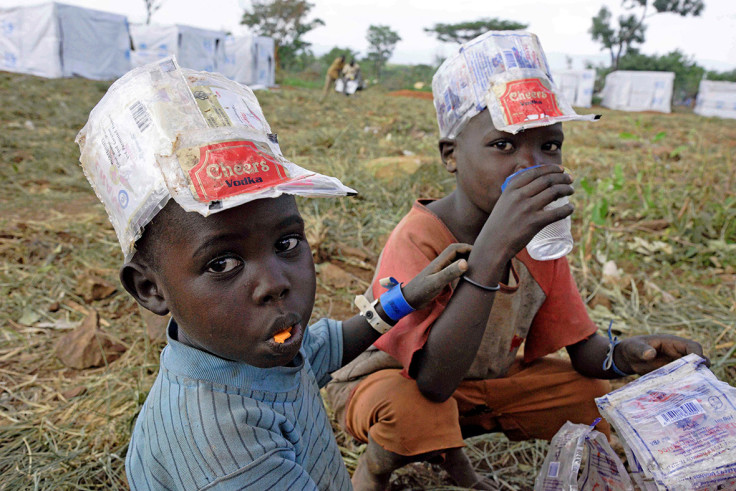South Sudan war: Plan to end world's fastest growing refugee crisis still 90% unfunded
More than 1.8 million people have fled to neighbouring countries since South Sudan war erupted in 2013.
The United Nations has called on donors to step up support for people fleeing war-torn South Sudan, claiming the $1.4 bn ( £1bn) project to help refugees remains largely unfunded.
Humanitarian organisations are seeking funds to provide life-saving support to people displaced by war, famine and a drought, but at least 86% ($1.2bn out of $1.4 bn) of the money needed is still lacking.
"Bitter conflict and deteriorating humanitarian conditions in South Sudan are driving people from their homes in record numbers," the UN High Commissioner for Refugees and the World Food Programme said in a joint statement on Monday (15 May).
The UN has deemed the displacement deriving from South Sudan war as the world's fastest growing refugee crisis, with more than 1.8 million people – of whom one million are children – having fled to neighbouring countries.
The organisation also said the number of people fleeing has exceeded estimates. For example, the number of people who sought refuge in Sudan in March, surpassed the figure estimated for the whole year.
The South Sudan conflict erupted in 2013 when President Salva Kiir, of the Dinka ethnic group, fired his deputy Machar – from the Nuer group – who then became a rebel leader.
Ethnic-related violence targeting Dinka and Nuer peoples has killed an estimated 50,000, amid allegations of crimes against humanity committed by both sides, including rape, torture and the use of child soldiers. The UN has several times warned the country is on the verge of a Rwanda-style genocide.
People continue to flee to neighbouring countries. The mass exodus has also been deemed "Africa's worst refugee crisis". More than 2m people are internally displaced.
Kiir and Machar have agreed on several peace deals – the last of which was signed in August 2015 – but have failed to control their troops, who have broken every ceasefire since 2014.
Machar fled South Sudan following deadly fighting in the capital Juba in July 2016. He is currently in South Africa seeking medical treatment but, in an exclusive talk with IBTimes UK, Machar said he was ready "to go home".
Earlier this year, the South Sudanese government – which has been hit by a string of high-level resignations – agreed to declare a unilateral ceasefire to promote peace in the war-torn country.
However, violence has continued since, amid fears ethnic cleaning might be underway in some areas of the country.

© Copyright IBTimes 2025. All rights reserved.






















